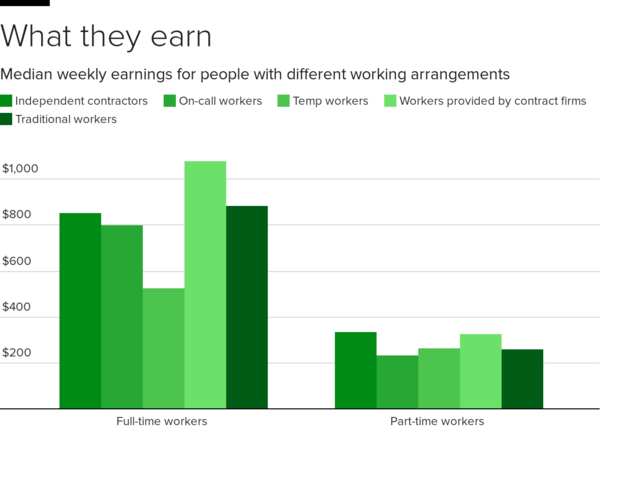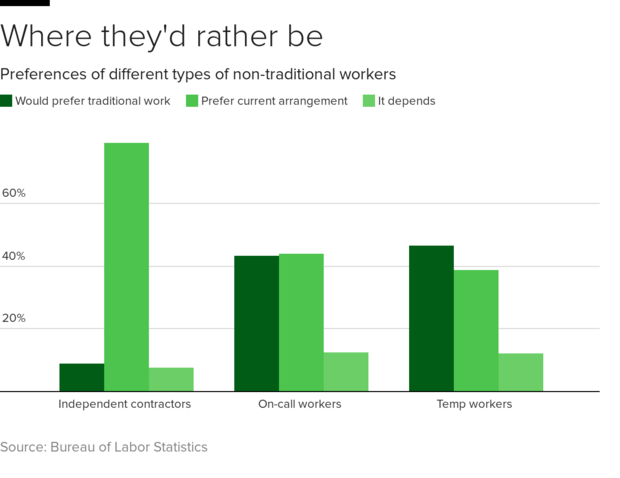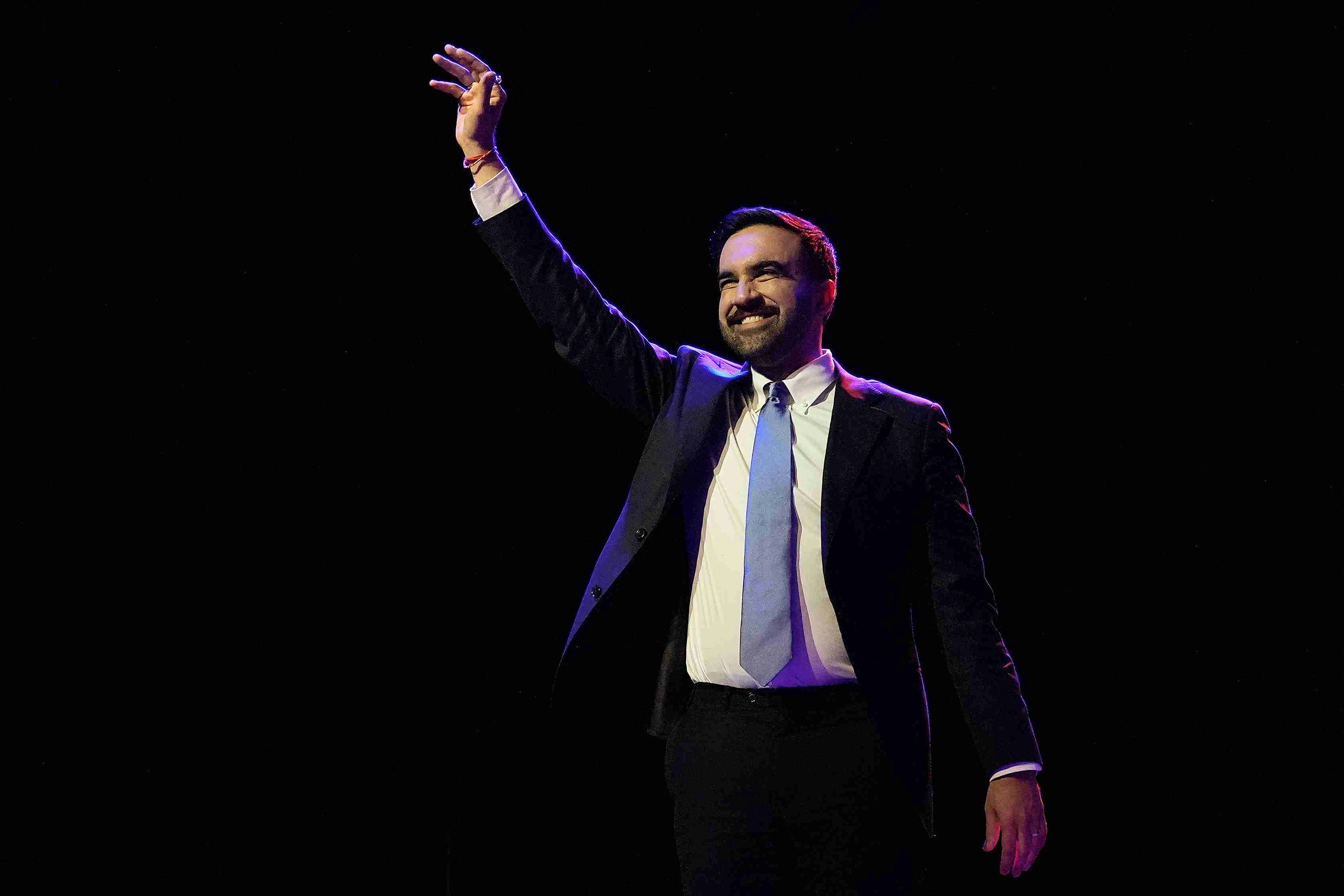The gig economy is much smaller than many people thought
Over the past decade, the much-vaunted freelance economy has spawned dozens of platforms designed to help people launch their unrealized dreams of independent work: from TaskRabbit to Fiverr to Upwork to Handy to the much-maligned Uber, to name just a handful.
One thing it doesn't seem to have created, though, is many full-time freelancers.
The portion of independent contractors in the workforce last year was slightly smaller than it was in 2005, according to figures released Thursday by the Labor Department. Just 6.9 percent of workers toiled primarily as independent contractors in 2017, down from 7.4 percent in 2005. There were slightly fewer on-call workers. The portion of temp workers and contract workers -- employees of a company who work for a client of their employer -- was flat.
"[I]t's hard for us to know if this reflects the strength of our economy or a structural shift," said Martha Gimbel, director of economic research at Indeed. "It seems likely that this is due to cyclical factors giving [freelance] workers the ability to negotiate themselves into more stable work arrangements."
The data are puzzling to some, since many other measures indicate that freelance and on-demand work has exploded since 2005. Some studies by gig-economy platforms put the portion of so-called independent workers at a third or more of the workforce.
The government study, however, has some key differences from industry research. It only asked about a person's primary job, so it doesn't capture freelancers who moonlight on top of a day job. And it is time-limited, so it only captures the freelance workers at a single point in time.
"People may be working one week and not the next week, so if you look at one week's worth of data you dramatically undercount the workforce," Stephane Kasriel, CEO of the freelancing platform Upwork, told CBS MoneyWatch. "A substantial part of the workforce is moonlighting."
Studies done differently, such as those that look at tax data, indicate the number of people who dabble in freelance work is substantially higher than those who use it to replace steady income.
Seasonal changes could also be a factor: The previous survey was conducted in February, while the one released Thursday was conducted in May 2017.
Independent contractors earned slightly less than traditional workers, while temp workers and on-call workers made significantly less money. Demographics play a role here, since temp and on-call workers are more likely to be African-American and Latino. Temp workers are also younger than the workforce overall.
Even though they earn less, however, independent contractors overwhelmingly love their jobs, with more than 4 in 5 saying they preferred it to a different arrangement. Most temps, on the other hand, would rather have a traditional job.
These figures suggest that for some workers -- particularly those with specialized and in-demand skill sets, who also tend to be older -- independent work really is one path to a more satisfying life. That's the line that many independent work platforms have been pushing for some time.
"As full-time employees, we tend to build our personal lives around holes and gaps that are left by our professional lives," said Kasriel. "For freelancers, it's the opposite."
But labor advocates note that work satisfaction isn't incompatible with traditional employment. Full-time freelancers who eschew nine-to-five employment are often giving up much more than a portion of their pay.
"Independent contractors don't have the right to a minimum wage, overtime or breaks," said Maya Pinto, senior researcher and policy analyst for the National Employment Law Project. "They can be subject to discrimination based on age, race, gender or disability; they don't have the right to organize or the right to a safe and healthy workplace, or workers' compensation or unemployment benefits, and they bear the full cost of Social Security and Medicare."
"It's true, workers want flexibility," she added. "But they also want basic security and the right to health care and retirement, and they shouldn't be forced to choose."







